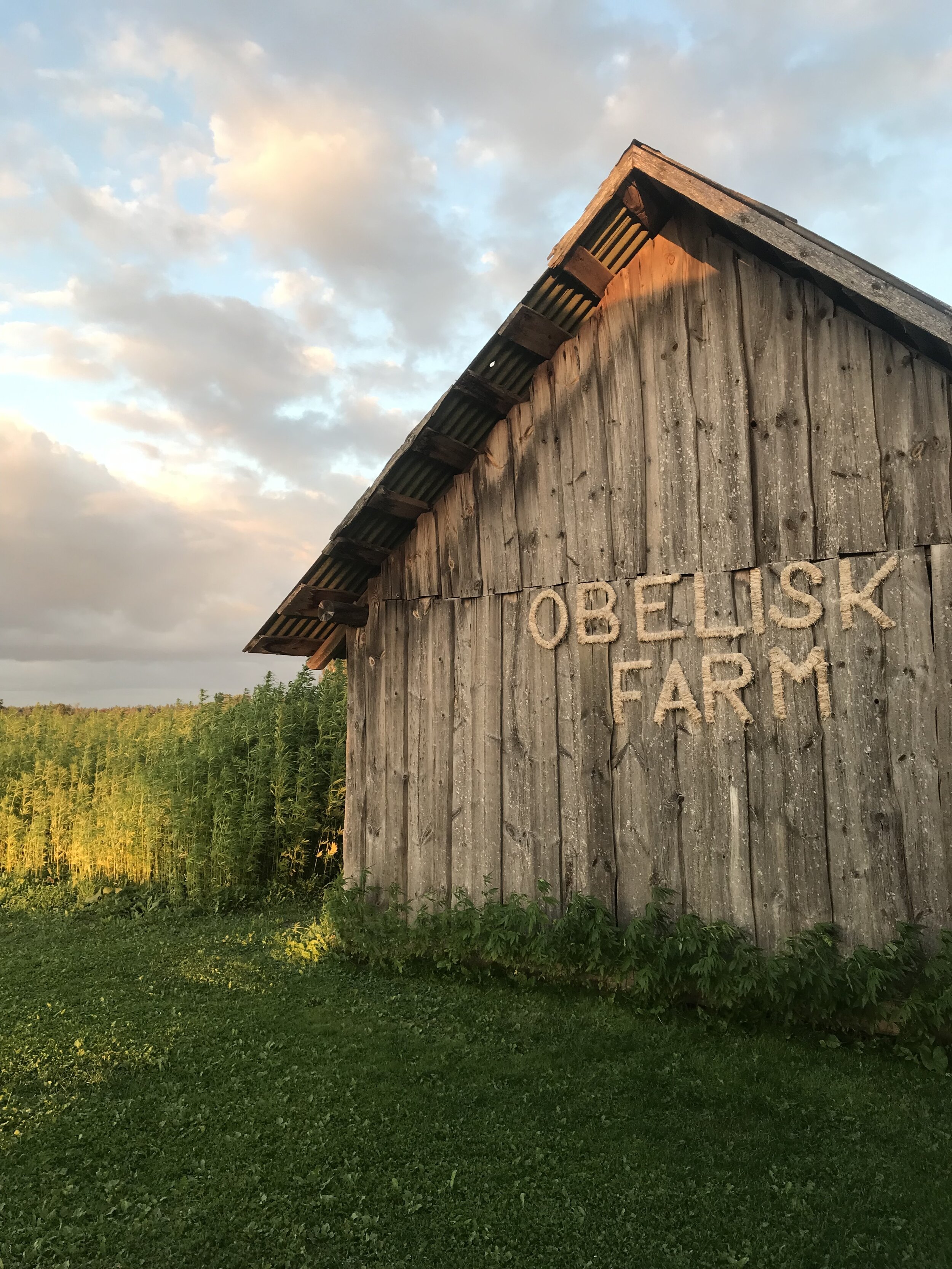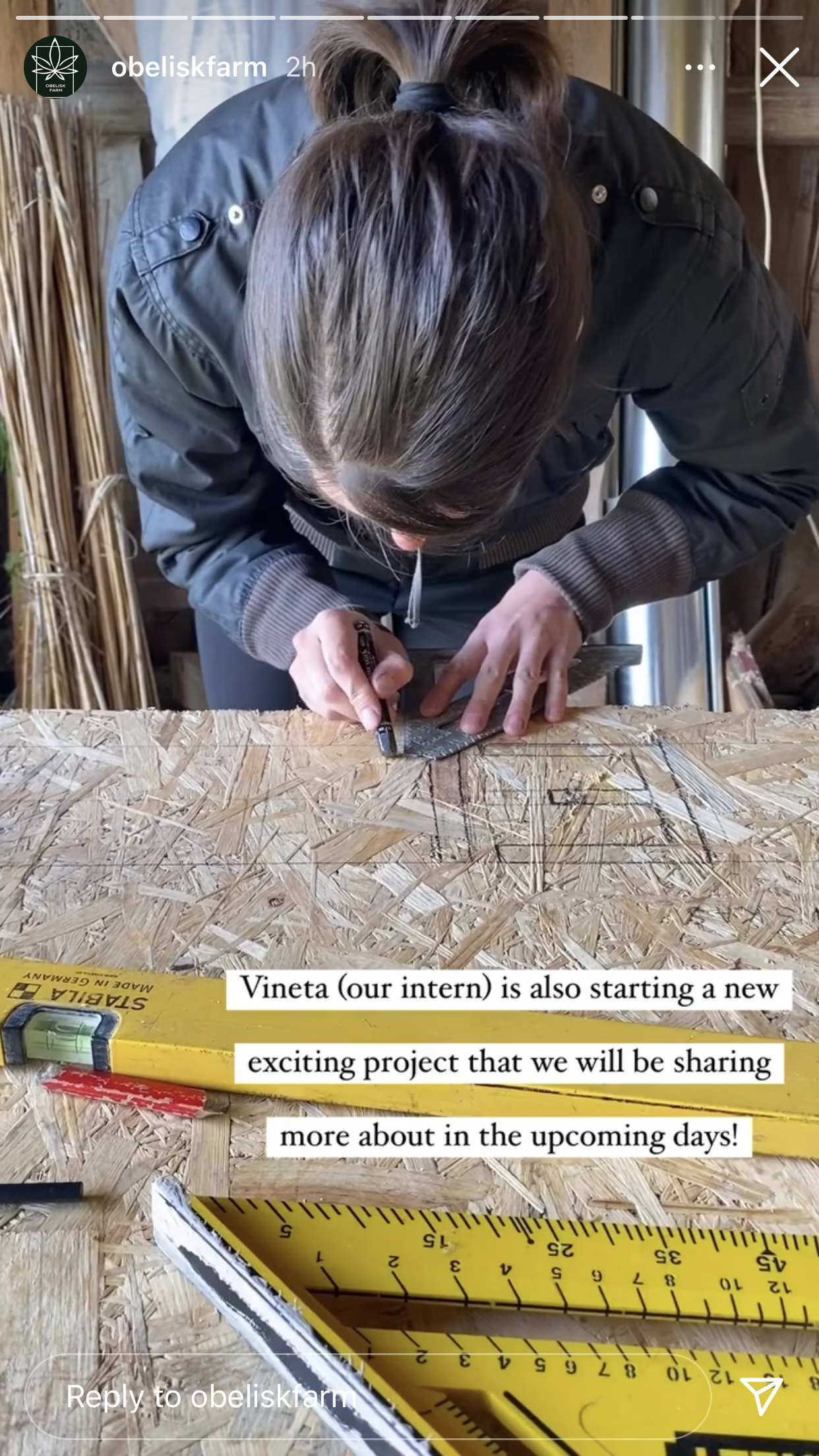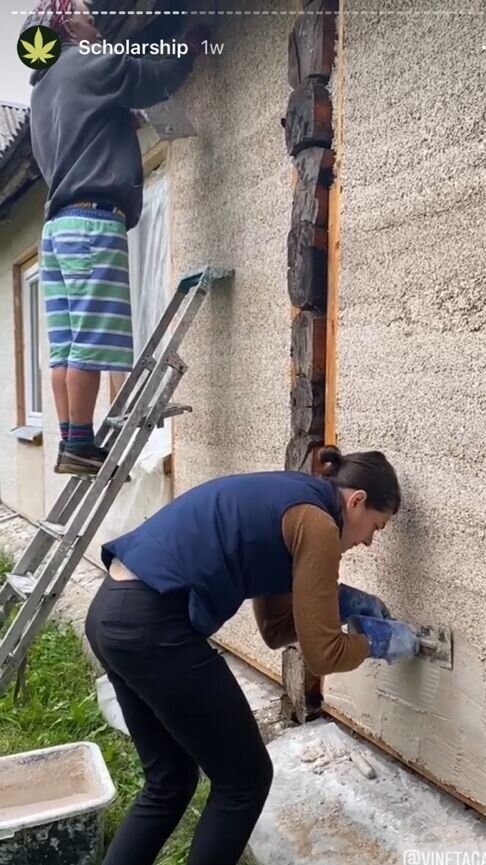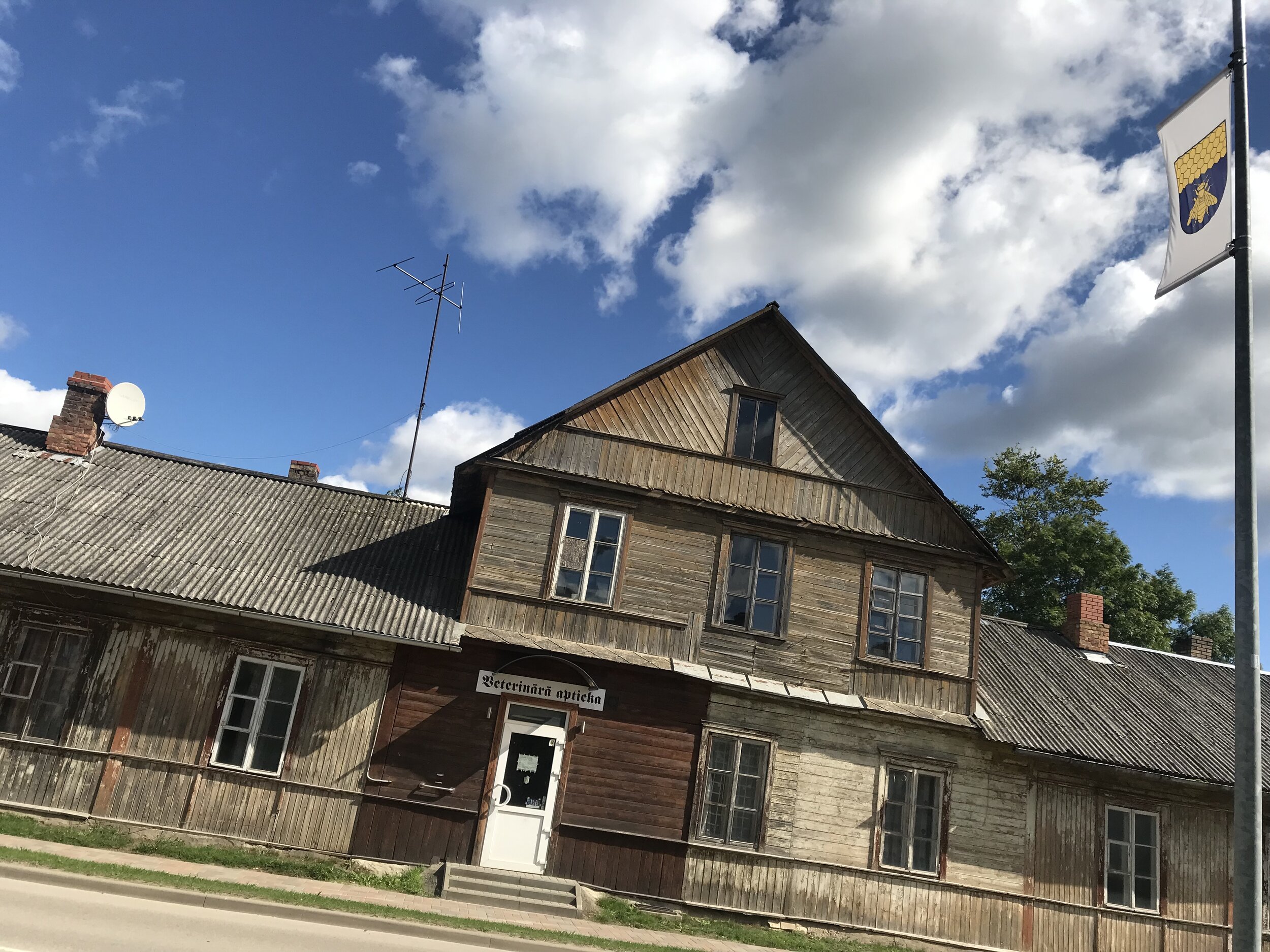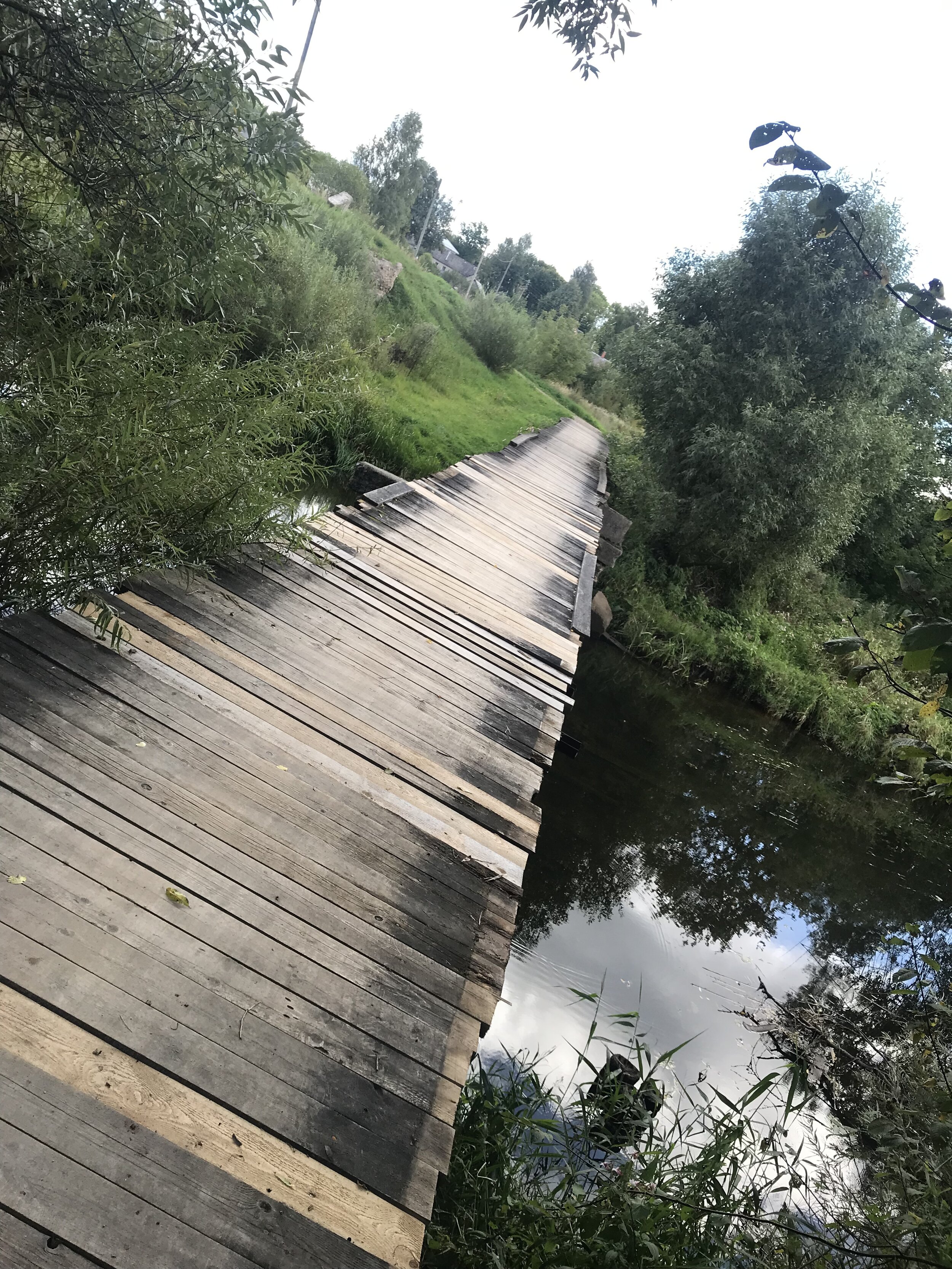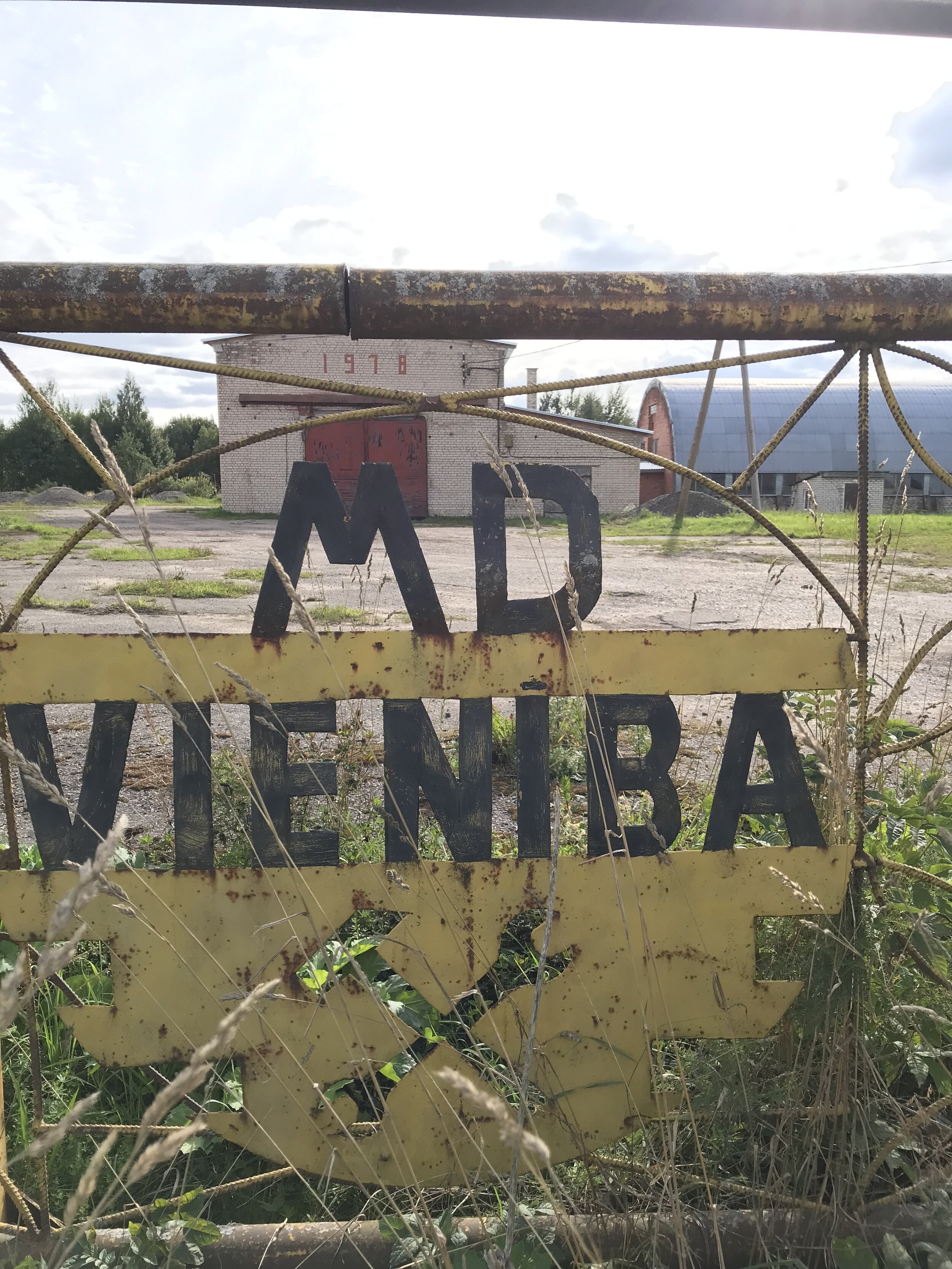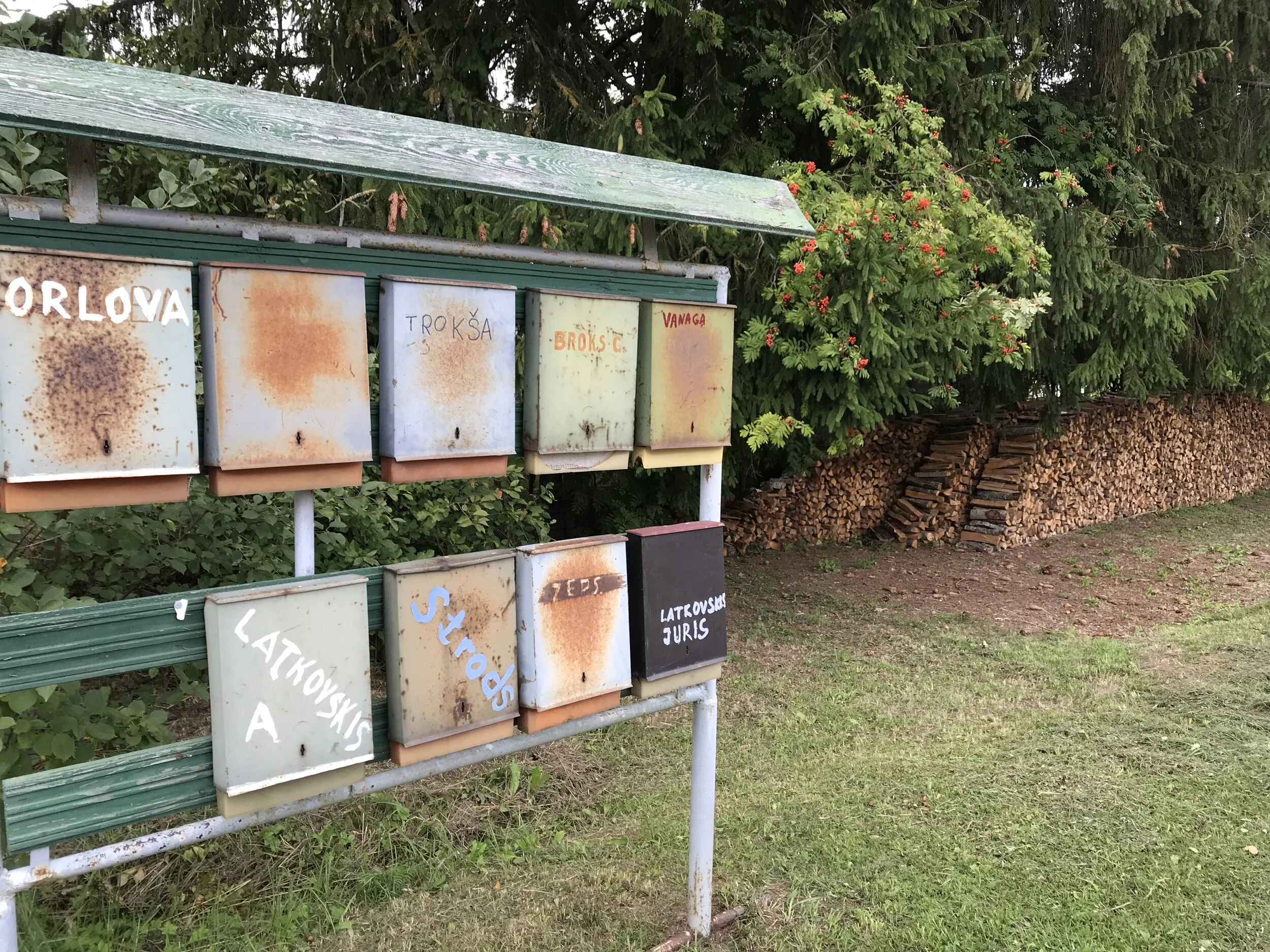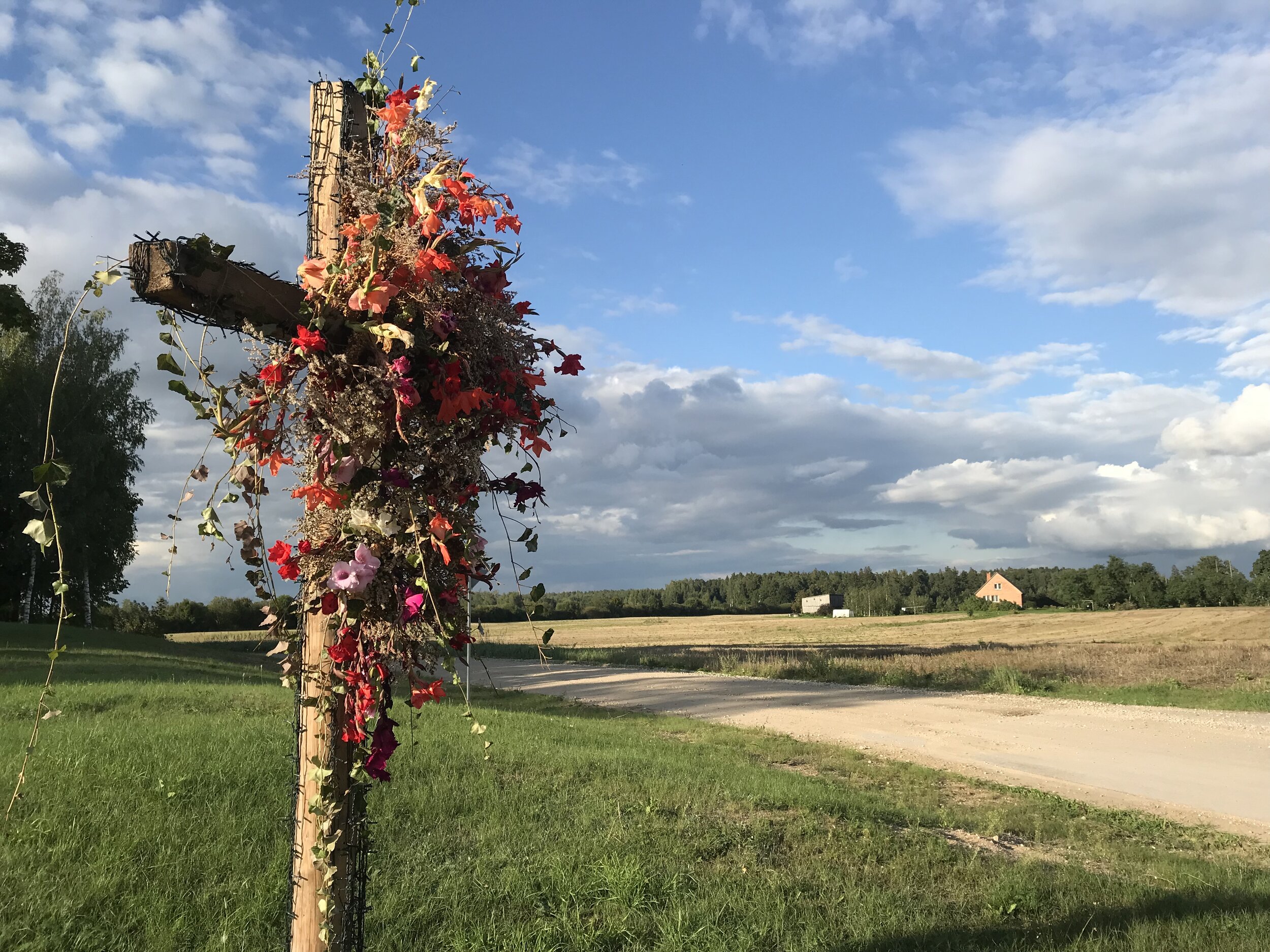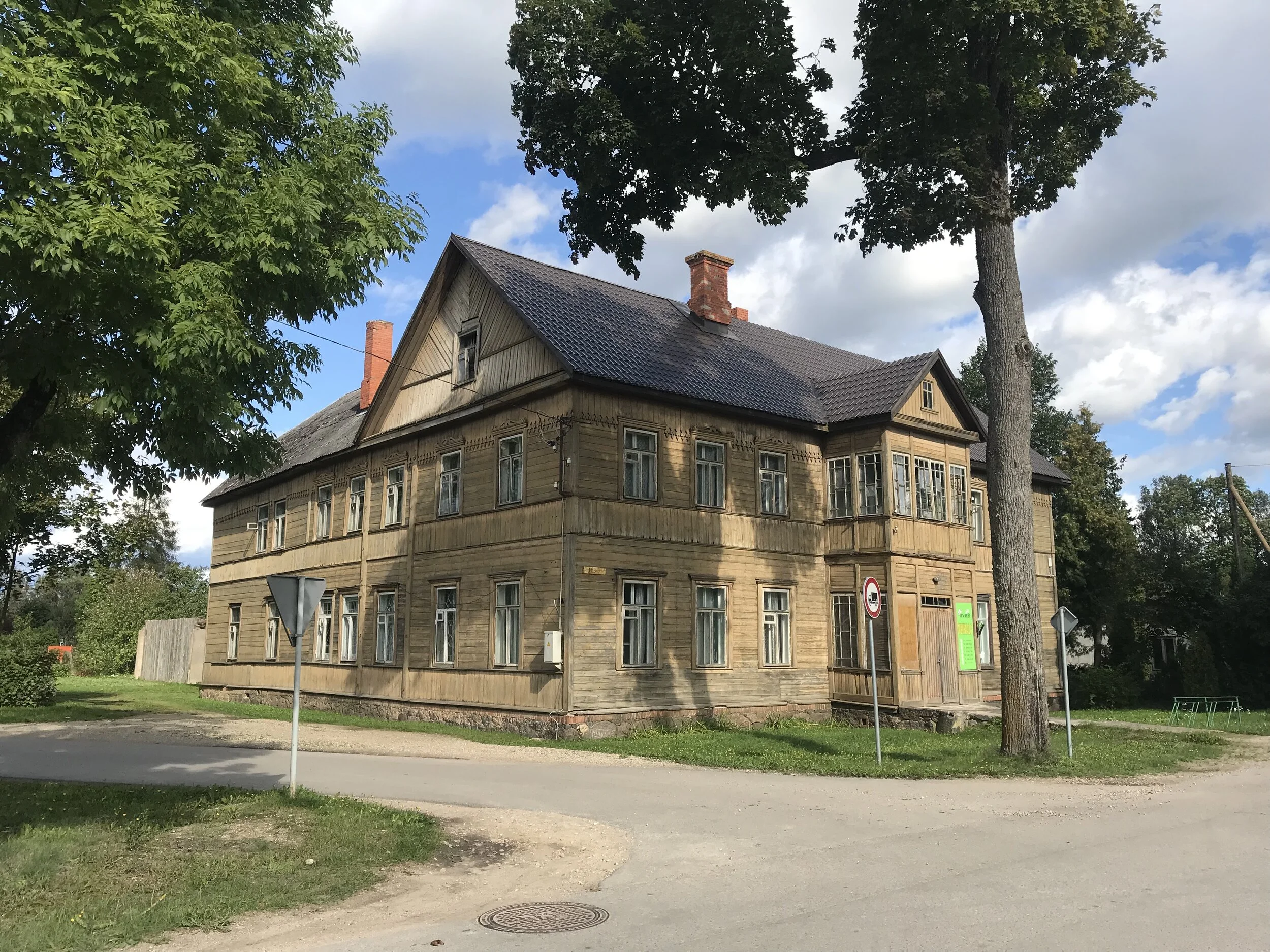Scholarship at Hemp farm.
I was in search of possibility to make my own fabric, from start to finish: from seed to material so it’s possible to do it all myself at home. I discovered hem plant as it is relatively easy to grow and to process by hand. And most importantly, hemp is described as regenerative agricultural crop, which means growing this crop organically is, not only sustainable, but can help to reverse damage done to soil by industrial agriculture.
And I discovered a lovely farm in rural Latgale which grows hemp. At Obelisk Farm: a family own business, where they not only grow hemp and make edibles, but have a hemp school and museum. During summer they are busy with visitors doing hard-work to earn good name for hemp and spread an awareness what really is a hemp plant: how to grow it and what kinda products can be created from it and offer workshops on how to do it. It’s a popular country-side tourist attraction with educational twist! I was lucky enough to get into a Forum Synergies scholarship program, and stay at Obelisk farm for two weeks, discover local area and learn about hemp’s potential in Latvian rural development. During these two weeks I learned a lot about local farmlands, history of this place, about Russian Orthodox settlement here.
Obelisk farm is located in Latgale between two small towns: Varakļāni and Viļāni, among large grain fields and dairy farms, not to mention nearest bus stop is 2 hours walk away, as I discovered when farm’s car broke down.
First week at Obelisk farm: Discovering and understanding local area.
I felt warm welcome by the Obelisk farm family: Andris and Débora. Their home looked very different to the rest in near vicinity, more modern even thou buildings itself are about 100 years old, inviting and exuding positivity. First thing we did was to make a road sign for village Obeliškas where hemp farm is located, it didn’t have one and for visitors was confusing to understand where to find Obeliškas. Also mapping place in reality not just on google maps can create sense of identity for residents and something little to proud of. Plus I really wanted to work with hemp fibre and by making letters with it I could really understand it’s tactile qualities and how it behaves.
Video made by Débora at Obelisk farm
I cycled to get to farm for 40 km and what stood out was enormous fields of industrial crops like: wheat and rapeseed, grown using pesticides, chemical fertilisers and herbicides. Coming closer to Obeliškas, an Russian Orthodox Old Believers village, now largely abandoned with grain fields all around and some large scale cow farmers now and then. Striking view was to see an orthodox pastor on a decrepit combine to collect his grain harvest on a field which at first sight looked like a meadow harbouring so many native fauna species. After I paid attention to what kinda cultures are cultivated around here: rapeseed, wheat, buckwheat and of course hemp in small quality at the moment, but surely making it popular.
As whole of the Cannabis Sativa plant can be used for different proposes I wanted know them all! Seeds, for oil full of omega-6 and omega-3 fatty acids and additives to food; flowers for relaxing tea; stem’s skin combed is turned into fibre for making fabric, robe etc, but core of the stem chipped can be used in building. I was also interested in natural building and using hemp for insulation, I got practical lessons from Andris on how they insulated (link to the demo) their wooden house and plastered outer walls. Through understanding insulation done on log home at Obelisk farm I was interested to explore the rest of buildings here at Obeliškas and created a video log of homes here.
I also spend some time to cycle to nearest towns: Varakļāni and Viļāni. Here I discovered how different are the municipalities of these two towns and that there are some political tensions between them both, as Latvia at the moment is undergoing regional reform and regions are allocated new borders, Varakļāni is controversial at this small town even went to court change decision to which region this town will belong and they will be having new election over a half a year later then the rest of the country, and this was quite visible to me as the first time visitor just by walking streets of both towns, how different they are.
Second week at Obelisk farm: weaving and harvesting hemp.
It was impressive how nice smelled hemp flowers and how pleasant it was to work with it as opposed to animal products. It was possible to pick a second harvest of hemp flowers, as plant manages to grow more flowers at the end of summer as it is stressed and all it needs to produce seed to continue it’s life, but that is very helpful for us humans to get more produce of hemp tea full of CBD. Besides had a chance to try hemp paper making, got to experience yet another way how it is possible to utilize hemp. And take part in Farmer’s market: went to sell Obelisk farm’s produce at the local market in Varakļāni town.
To start experiment to make my own fabric I decided to try weaving: I made a small frame to making a small rug from hemp fibres. I had 3 types to use: crashed stem of the plant still with core chips in it, darker colour, then light brown combed and soft to touch and white bleached fibre (bleaching I tried to do myself by boiling off oils in the raw fibre and after submerging fibre in water and bleach mixture.
Then I was asked to make a larger tapestry for hemp museum. I had never made before that large: 2mt high, but I took up the challenge and was very pleased with result it went so well with colours of the rock wall and tells the story of different stages of precessing hemp fibre. I had to harvest hemp plant for part of a tapestry that’s when I learned timings for hemp harvest and separating flowers, leaves and stem for easier processing. (stem will be left over winter on field to be ready for spring harvest).
It was fantastic journey to live at the Obelisk farm, I learned about hemp, but also so much more as it is a small family run business and how it is for Débora and Andris to educate public on cannabis plant, make a good name for it, navigate regulations about it’s use in food and legality of growing it. Also hard work about advertising and informing about business though social media, because it’s not just a farm but also a busy tourist attraction. As it is growing a novel culture plant for Latvia also educational tours from border control staff and Plant protection officers is common to learn about this controversial plant: cannabis sativa.
I got many useful tips from Débora about commination and media role in business, such small things as tips how to make short videos were enlightening, opening many possibilities.
But also it was an so interesting to experience how family lives in such a deep countryside: how kids gets to school, how shopping happens, how couriers come and small things like mushroom picking, and many more mundane things. I learned enormous amount and all thanks to Débora and Andris.
Last day, when we all walked together: for kids to go to school and me back home. Thank you Obelisk Family!
Video from Obelisk farm perspective of about my stay at the farm :)




